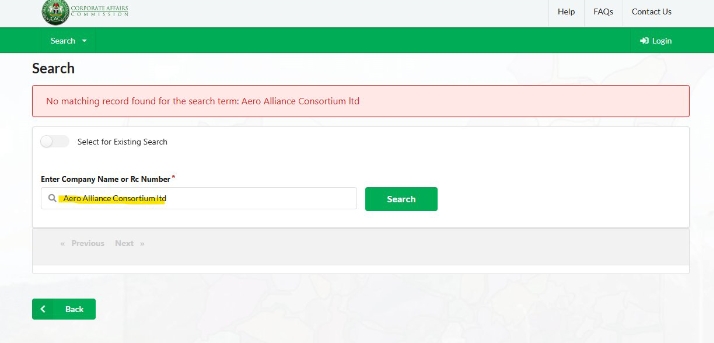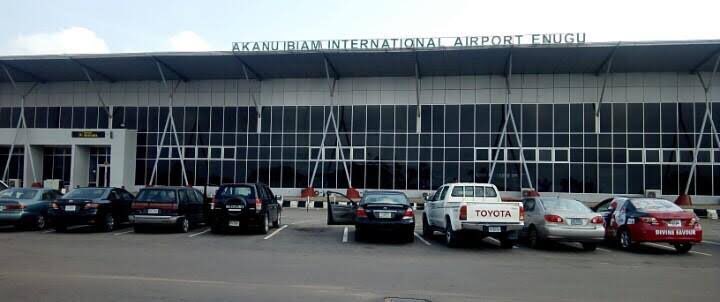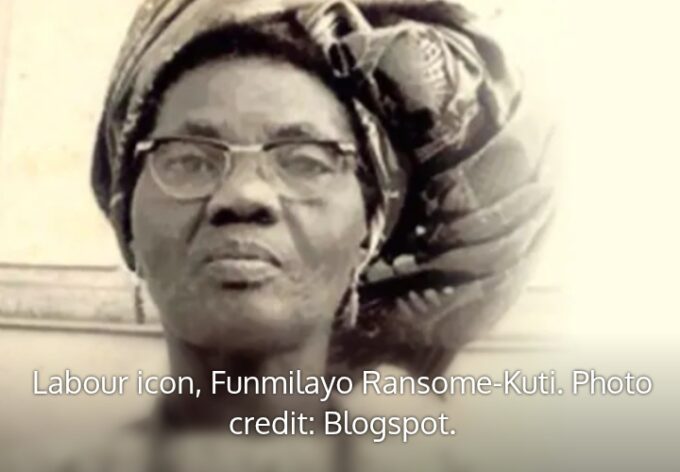By Chioma Obinagwam
The Akanu Ibiam International Airport in Enugu, a critical gateway to Nigeria’s South-East region, has become the center of heated debate following the Federal Government’s plan to concession the airport to the Aero Alliance Consortium for an unprecedented 80-year period. Confiance News gathered that this Public-Private Partnership (PPP) agreement, detailed in a 64-page draft contract, has sparked widespread criticism from financial experts, aviation stakeholders, labour unions, and Nigerians, including prominent voices like Kalu Aja, a financial analyst on X. The concerns revolve around the deal’s transparency, duration, financial implications, and perceived inequities, raising questions about whether it serves the public interest or prioritizes private profit.
Inside the Concession Agreement: What You Need to Know
The concession deal, nearing completion as of April 2025, aims to transfer the management of non-aeronautical assets of Akanu Ibiam International Airport to Aero Alliance Consortium under a finance, rehabilitate, operate, and transfer model. According to reports, the agreement includes provisions for airport upgrades, revenue-sharing arrangements, and the handling of Federal Airports Authority of Nigeria (FAAN) staff. Notably, Clause 5.1 of the contract stipulates that existing FAAN employees will be transferred to the concessionaire with full benefits for 24 months, with no forced redundancies. Staff deemed redundant post-restructuring will be reabsorbed by the government, which will also cover their pension and gratuity payments.
However, Confiance News reports that the most contentious aspect of the deal is its 80-year duration, which critics argue is excessively long compared to global standards for airport concessions, typically ranging from 20 to 40 years. The draft specifies that the concession period begins on the effective date and ends on the 80th anniversary or earlier if terminated per the agreement’s rules. Either party may terminate the agreement if conditions precedent are not met within 180 to 270 business days from execution.
Why the Outrage?
Financial experts, aviation stakeholders, and Nigerians have voiced strong objections to the concession agreement, citing several red flags. Below are the primary reasons for the backlash, with insights from Kalu Aja and others:
Unprecedented 80-year duration
The 80-year concession period has been widely criticized as excessive and akin to an outright sale of the airport. Kalu Aja, in a series of posts on X, described it as “simply a sale via other means” and questioned the financial modeling behind such a long-term agreement, noting that yield curves typically extend only to 30 years.
Corroborating, Industry experts like Group Captain John Ojikutu echoed this sentiment, arguing that concession periods should not exceed 30 years, as anything longer risks exploitation of the public. Ojikutu further questioned the lack of transparency regarding the contractual sum and whether a competitive bidding process was followed.
Globally, airport concessions rarely exceed 40 years, with renewals contingent on mutual agreement. The 80-year term for Enugu, compared to shorter periods for other Nigerian airports like Abuja (20 years) and Kano (30 years), has fueled perceptions of regional bias and mismanagement.
Lack of Transparency
Transparency—or the lack thereof—is a recurring theme in the criticism. Kalu Aja raised pointed questions about the Aero Alliance Consortium, asking, “Who owns Aero Alliance Consortium? Why is it a secret to hand over the only International airport in the South East to an entity not registered by the CAC?” He also queried the selection process, emphasizing that the Infrastructure Concession Regulatory Commission (ICRC) guidelines require open and competitive bidding. Aviation unions, including the National Union of Air Transport Employees (NUATE), have accused the government of conducting the concession “in the dark,” sidelining critical stakeholders like labour unions and FAAN.
The absence of public disclosure regarding the concessionaire’s financial capacity, the bidding process, and the expected returns to the government has deepened suspicions of corruption. Comrade Ocheme Aba of NUATE demanded that the government publish the documents, processes, and benefits to Nigerians, arguing that private companies’ involvement must prioritize public interest.
Highlighting the lack of transparency, Aja wrote on his official X handle: ‘I heard about this Enugu Airport scam because a “sauce” sent it to me.If you look, not much is being discussed in the press about this. The news only came out because the Airport Unions are against it. This would have been done quietly, which is the indicator they know it is fishy.I will stay on this topic until we get answers from @fkeyamo.’
Financial and Economic Concerns
Critics argue that the financial terms of the deal are opaque and potentially disadvantageous to Nigeria. Kalu Aja, who is also a Certified Financial Education Instructor (CFEI), highlighted a particularly “outrageous” clause: if the concession is terminated due to a default by the Federal Government, the government must compensate the concessionaire for outstanding loans, third-party liabilities, equity investment, and projected profits. This clause places significant financial risk on the public while seemingly protecting the private partner.
Additionally, the lack of clarity on the concession’s revenue-sharing formula and the airport’s generated revenues has raised concerns about whether the deal is economically viable. Ojikutu questioned, “What are the generated revenues of the Enugu airport, and what is the government expected from the investment on it?” Given Enugu’s strategic importance as the only international airport in the South-East, critics argue that the government should prioritize its viability through direct investment rather than a long-term concession.
Perceived Regional Inequity
The concession has sparked accusations of regional bias, as Enugu’s 80-year term contrasts sharply with shorter concessions for airports in Lagos, Abuja, and Kano. Kalu Aja pointedly asked, “Why 80 for Enugu but 20 and 30 years for other regions?” This disparity has fueled narratives of marginalization, with some Nigerians viewing the deal as an attempt to undervalue or “steal” a critical asset from the South-East. Aja’s comparison of the 80-year concession to a 99-year Certificate of Occupancy underscored the perception that the airport is being handed over to a “faceless company” for an unjustifiably long period. He said:”Your Certificate of Occupancy is for 99 Years but a faceless company has been given an 80-year concession to steal the Enugu International Airport. Why 80 for Enugu but 20 and 30 years for other regions. @fkeyamo Could you show us the workings?”

Historical Context and Public Skepticism
Nigeria’s history of poorly executed concessions has amplified public distrust. Labour unions have noted that previous airport concessions, such as those attempted under former Aviation Minister Hadi Sirika, were marred by allegations of corruption and lack of due process. The Enugu airport, remodeled in 2010 with a $500 million loan from China, has faced recurring issues, including runway deterioration, prompting skepticism about the government’s ability to manage such assets effectively. Critics argue that the government should address these underlying issues—such as soil conditions affecting the runway—before conceding control to a private entity.
Stakeholders’ Reactions
Labour Unions: Unions like NUATE, ANAP, and ATSSSAN have condemned the lack of inclusivity, locking FAAN offices in protest and demanding dialogue with the government. They argue that while they are not opposed to concessions in principle, the process must be transparent and account for workers’ welfare.
Aviation Experts: Experts like Ojikutu and Adenihun have called for shorter concession periods, robust regulatory frameworks, and public disclosure of the deal’s terms to ensure accountability.
Public Sentiment: On X, Nigerians have echoed Kalu Aja’s concerns, with users like Step Up Naija labeling the deal as “state-sanctioned capture” when terms prioritize private profit over public interest.
In the words of Step Up Naija,”Let’s be clear: this isn’t just a concession.
It’s a decades-long handover of public infrastructure—signed without public debate, oversight, or consent.An 80-year lease for a federal airport, with repayment guarantees for projected returns if terminated?
That’s not risk-sharing. That’s state-sanctioned capture.”
The sentiment reflects broader frustration with governance failures in Nigeria’s aviation sector.
On the flip side, an X user identified as After Hours supports the 80-year concession deal an asserts that it is a high risk project with.low viability market
He said:”A risk and viability assessment is performed for a project. A 20 yr concession in a low risk, high viability project is fair and a 50-80 yr concession in a high risk low viability market is also fair. Financed back projects need commensurate tenor derived from its assessment.
He argued that the long concessionary period will cater to the perceived volatility in the Southeast (SE) region.
“This will depend on the terms of credit from the financier. Consider that at least 7-10 years is built into the finance package for construction. So you’re not making any money for 10 years. SE volatility means you’re paying a lot of gangs,” After Hours explains.
“So a lot of informal costs are built in. Project gets commissioned and viability is not guaranteed for another 10 years in its pilot/ test run phase. So essentially 25 years of no money being made. Initial capital has not been returned, depreciation of currency value also. Honestly anyone that gives 80 years on a project like this is throwing money away. Because what you eventually get at 80 years tenor will be almost equivalent to the true fave value of what you invested due to currency devaluation, insecurity, change of government wahala,” he argued.
Case for Concession
Proponents of the concession argue that private investment could modernize Enugu’s airport, improve efficiency, and enhance passenger experience. Private companies often bring expertise in managing operations, upgrading infrastructure, and introducing new technologies, potentially making the airport more competitive. The Enugu State Government’s partnership with FAAN to develop cargo terminals and operationalize the international wing suggests optimism about the airport’s potential to drive economic growth in the South-East.
However, these benefits are contingent on a transparent and well-structured agreement, which critics argue is absent in the current deal. The lack of competitive bidding, coupled with the 80-year term, undermines confidence in the concession’s ability to deliver public value.
Kalu Aja’s Role in Amplifying the Debate
Kalu Aja, a financial expert and vocal commentator on X, has been instrumental in bringing the concession’s flaws to public attention. His pointed questions about the concessionaire’s identity, the selection process, and the financial risks have resonated with Nigerians, sparking broader discourse on governance and accountability. By comparing the 80-year term to a near-permanent transfer of public assets, Aja has framed the deal as a potential betrayal of public trust, urging the Minister of Aviation, Festus Keyamo, to provide clarity.
His focus on transparency and due process aligns with the concerns of aviation unions and experts, making him a key voice in the opposition.
A Call for Accountability
The concession of Akanu Ibiam International Airport represents a critical test of Nigeria’s ability to balance private investment with public interest. While PPPs can drive infrastructure development, the Enugu deal’s 80-year duration, lack of transparency, and unfavourable financial terms have fueled legitimate concerns. Financial experts like Kalu Aja, alongside aviation stakeholders and the public, are right to demand answers about the Aero Alliance Consortium, the bidding process, and the deal’s long-term impact on the South-East’s economy.
To restore public trust, the Federal Government must publish the concession documents, shorten the concession period to align with global standards, and ensure competitive bidding. As Kalu Aja aptly stated, “Transparency is key.” Without it, the Enugu airport concession risks becoming another chapter in Nigeria’s history of mismanaged public assets, leaving the South-East—and the nation—to bear the consequences.









Leave a comment